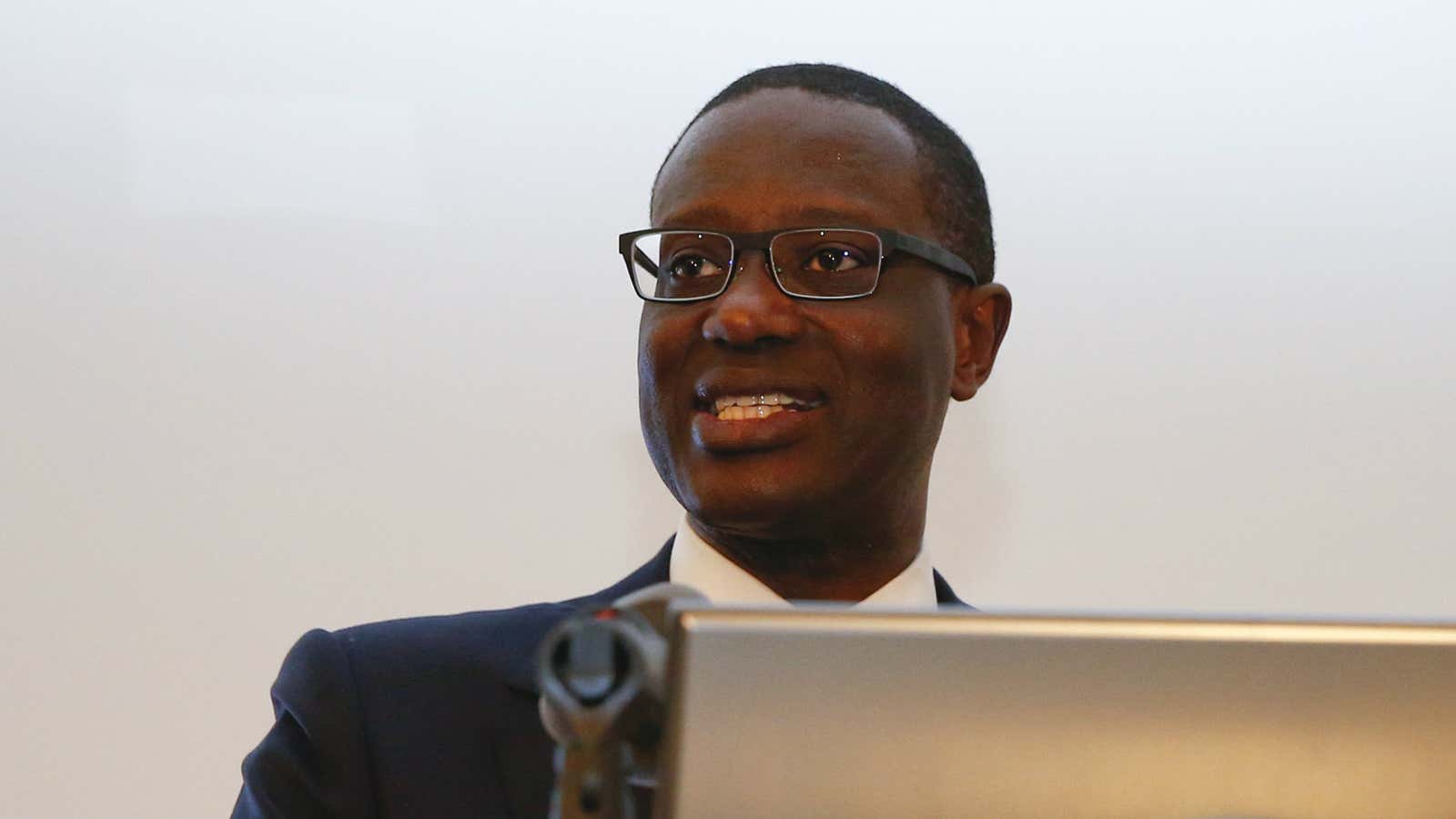Tidjane Thiam, just named CEO of Credit Suisse, has a line he once fed a headhunter: ”I am happy to interview. But you need to tell them you found someone who’s black, African, Francophone, and 6ft 4.”
He landed the job, a senior-management gig at Aviva, the British insurer, and rose quickly through the ranks. After six years, he left to become CFO of Prudential in the UK in 2008. A year later: he was CEO.
An Ivory Coast native, Thiam’s ascension to the top job at Credit Suisse, the seventh largest investment bank in the world, is noteworthy. Unlike say executives of Indian or Chinese origin, there are next to no first-generation black African role models at the very top of global businesses. Corporate America has been a tougher maze to navigate for both Africans and African Americans. There are currently just five African American CEOs of Fortune 500 companies.
Thiam admits to being a little uncomfortable with the focus on his race. But as the first black person to head a FTSE 100 company in the UK and now the first black person to head a major European bank, he also recognizes the reality of his privileged position—and the reality of racism.
“I avoid talking about it because I don’t think it’s very helpful. [The UK] has been a wonderfully welcoming place for me,” he said in an interview on BBC Radio’s Desert Island Discs in 2012. But “in every society in every place there are people who are not necessarily open minded and constructive.”
His resume is impeccable: Besides several years running the UK’s largest insurance firm in Prudential, he is an outstanding academic who attended some of France’s best schools. He hails from a well-connected Ivorian family and has work experience from McKinsey, the World Bank, and a stint as an Ivorian government minister. In 2000, he was invited by former president Laurent Gbagbo to be his prime minister. He declined.
In business, it hasn’t been all plain-sailing, particularly with his botched attempt to takeover AIA, an Asian life insurance firm in a deal valued at $35 billion, which would have been Britain’s largest ever rights issue. His company was fined £30 milion by regulators for not disclosing their plan early enough.
But Thiam overcame that dark period in his career and bounced back with strong profit growth in last two years. That is why investors in Prudential and Credit Suisse had markedly different reactions to the news of his appointment. Prudential lost £1.3 billion ($1.7 billion) in value on the news while Credit Suisse gained 2.9 billion Swiss francs ($3 billion) in value today, according to FactSet.
The swing in value under Thiam’s watch totaled $4.7 billion.
